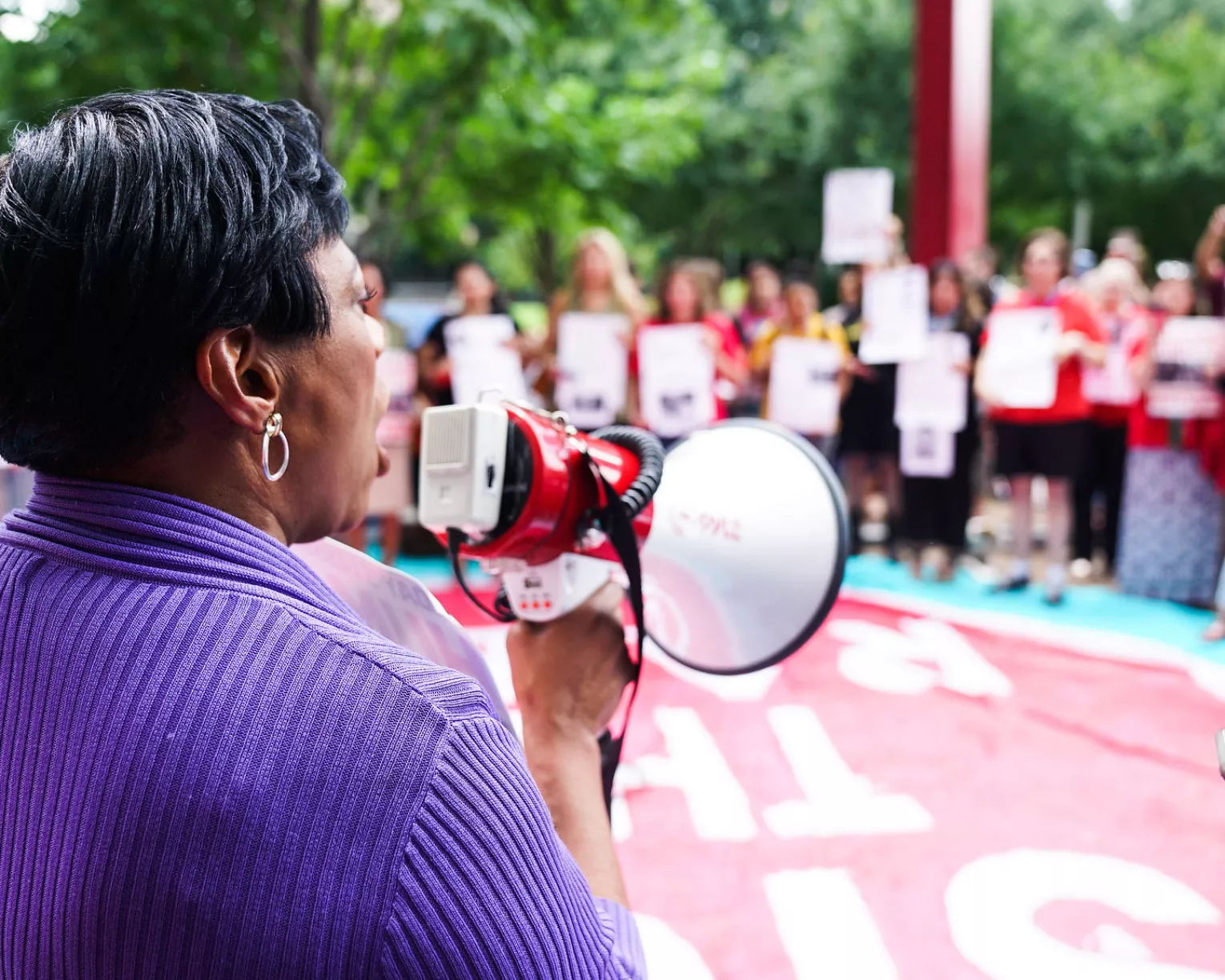Key Takeaways
- Abolishing DACA has damaging effects on recipients, including educators.
- Educators can help by urging Congress to pass permanent legislative protections.
For ten years, DACA has provided more than 600,000 immigrants, who came to the U.S. as children, temporary lawful status that prohibits their deportation and makes it legal for them to work and get a driver’s license, among other life-changing provisions.
In October, however, the Fifth Circuit Court of Appeals ruled DACA unlawful.
Despite finding that the DACA program is unlawful, the Fifth Circuit allowed the program to remain in place for current recipients and for those processing renewals, as the case continues in the courts. However, it is likely that the courts will end DACA in the next few years—unless Congress acts now.
“The recent ruling … is a blow to all the work we have fought so hard to do,” says NEA President Becky Pringle, who adds that the loss of protections for 9,000 DACA educators will only make the nationwide educator shortage worse. “We need these educators more than ever.”
A Texas-Led Challenge Deemed DACA Unlawful
In 2012, President Barack Obama, under executive order, directed the Department of Homeland Security (DHS) to establish the DACA program because of congressional inaction to fix the nation’s immigration system. Since then, DACA has been under constant threat.
“It’s hard being in this limbo,” said Karen Reyes, a teacher of deaf preschool students in Austin, Texas, in 2018. A former Girl Scout who has lived in the U.S. since

the age of 2, Reyes attended U.S. public schools from kindergarten through graduate school, eventually earning a master’s degree in Deaf Education and Hearing Science from the University of Texas Health Science Center at San Antonio.
Over the years, the program has gone through a back and forth of rescission and reinstatement. This time, in Texas vs. United States, a three-judge panel upheld an earlier lower-court decision and found the DHS memorandum that established DACA to be unlawful in two ways:
- Procedural: DACA violated the Administrative Procedure Act because there was no notice and public comment period.
- Substantive: DHS exceeded its authority in establishing DACA, violating the Immigration and Nationality Act, which governs immigration law.
Young people who were brought to the U.S. as children stand to lose all they and their families have built here.
“If DACA went away, I would have no way to plan ahead,” said Azhalia Leal, a math teacher in Dallas, Texas, in a video message. Leal came to the U.S. at the age of 3 and over time built a successful life within her community and as an educator. “I would have nowhere to go, and I would not see a future in the United States.”
While litigation continues—possibly all the way to the U.S. Supreme Court—those with DACA status will continue to be protected from deportation and maintain their work permits. They will also be able to renew these protections. New applications and employments requests are being blocked.
Educators Can Help Support DACA
A small legislative window exists between now and the end of the year to get the current Congress to pass legislative protections. It will take bipartisan support to keep those who have long called this country home protected from deportation and other threats to their livelihood.
“We don't want to wait for a crisis moment, where folks are falling out of status … renewals are no longer being processed, and every week thousands of DACA recipients are losing their jobs and risk deportation,” says Maria Praeli, a government relations manager at FWD.us, an immigration reform advocacy group. “We want to make sure we utilize the next few weeks to push something through [Congress].”
7 in 10 voters support legislation that would create an earned pathway to citizenship for Dreamers who came to the U.S. as young children and invests in border security. (Source: FWD.us)
And Congress needs to hear from constituents, particularly educators.
“Educators are some of the most trusted messengers [in their communities],” says Lubna Alam, staff counsel at NEA. “People have a lot of trust and faith in educators.” Alam underscores how it will be critical for Members of Congress to hear the personal stories of those who are most affected by DACA’s demise.
According to recent news reports, Congress is working on a last-minute immigration deal, and “through our collective action, we will push the current Congress to pass permanent protections for our Dreamers and create pathways to citizenship for everyone who calls this country home,” says Pringle.
“We can make the United States a place where ‘we, the people,’ includes all of us,” said Alondra Garcia earlier this year. “This country can be a home where everyone can thrive and reach their full potential—no exception. Our families must have a road map to citizenship. We must not be treated as expendable and deportable, because immigrants are essential.”
(To receive the latest updates and actions from NEA, text DACA to 48744.)



